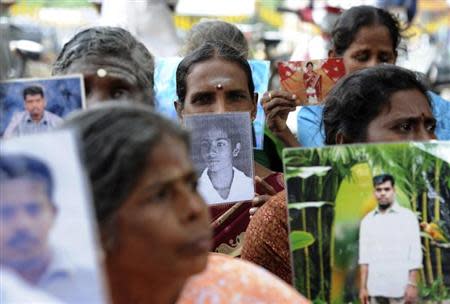U.N. launches Sri Lanka war crimes investigation

GENEVA (Reuters) - The United Nations on Thursday launched an inquiry into war crimes allegedly committed by both Sri Lankan state forces and Tamil rebels during their conflict that ended in 2009, saying the government had failed to investigate properly. By a vote of 23 states in favour, 12 against and 12 abstentions, the 47-member U.N. Human Rights Council adopted a resolution presented by the United States on behalf of countries including Britain. "The international community has become increasingly concerned by the continued lack of progress in achieving reconciliation, justice and accountability for serious allegations of violations of international human rights law and international humanitarian law," Paula Schriefer, U.S. deputy assistant secretary of state, told the Geneva forum. Sri Lanka - which "categorically" rejected the resolution - has been under growing international pressure to deal with war crimes allegedly committed in the final stage of a 26-year conflict, in which the army defeated separatist Tamil Tiger rebels five years ago. Sri Lanka's ambassador Ravinatha Aryasinha told the talks on Thursday that the Indian Ocean island nation had made tangible progress in addressing accountability. He said parallel truth-seeking processes would be "counter-productive". "Sri Lanka categorically and unreservedly rejects this draft resolution as it challenges the sovereignty and independence of a member state of the U.N.... and is inimical to the interests of the people of Sri Lanka," Aryasinha said in a speech before the vote. "The U.N. inquiry brings new hope for the thousands of victims of abuses in Sri Lanka," David Griffiths, Asia-Pacific deputy director at Amnesty International, said in a statement. States that voted against the resolution included China and Pakistan, while India was among those that abstained. (Reporting by Stephanie Nebehay; Editing by Andrew Heavens, John Stonestreet)

